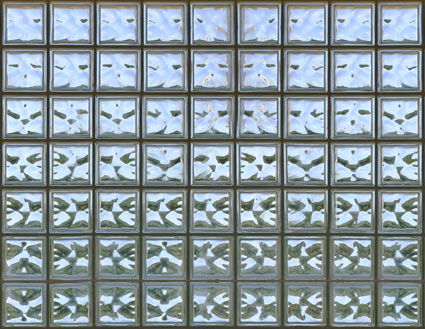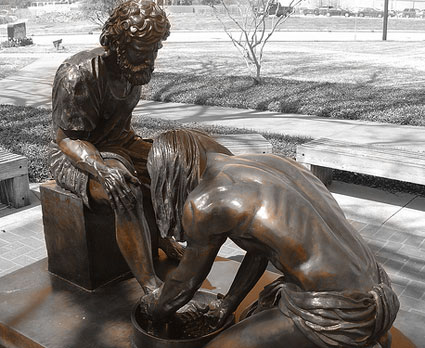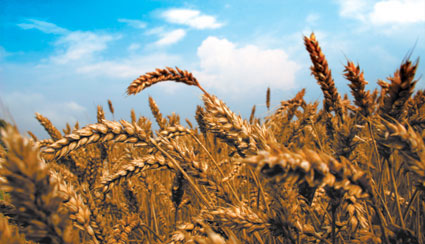Eye Spy – 2
NOTE: THIS POST HAS BEEN REMIXED AND INCLUDED IN GOD’S KITCHEN.
Behind Closed Doors
“…who shut in the sea with doors, when it burst forth and issued from the womb?” Job 38:8
As with all good government, important kingdom decisions are carried out in private. This is pictured in many ways, not least in God’s design of our everyday lives.
Angels in the Trees – 2
“…that you may become blameless and harmless, children of God without fault in the midst of a crooked and perverse generation, among whom you shine as lights in the world” Phil. 2:15
Acacias, not Mulberries
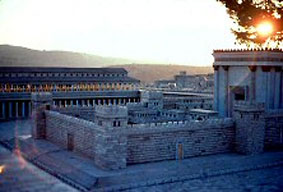 So, acacia wood is at the heart of the Holy furniture. The Tabernacle is a wilderness world glorified by Spirit-filled men and brought into the tent of God,[1] under the wing of Boaz, under the friendly firmament of a new Covenant, under the great tree that grows to shelter the nations.
So, acacia wood is at the heart of the Holy furniture. The Tabernacle is a wilderness world glorified by Spirit-filled men and brought into the tent of God,[1] under the wing of Boaz, under the friendly firmament of a new Covenant, under the great tree that grows to shelter the nations.
That Which is Perfect
or Through a Glass Sea Darkly
“Love never fails. But whether there are prophecies, they will fail; whether there are tongues, they will cease; whether there is knowledge, it will vanish away. For we know in part and we prophesy in part. But when that which is perfect has come, then that which is in part will be done away.” 1 Cor. 13:8-10
I remember hearing a Southern Baptist pastor many years ago teaching that “that which is perfect” was the completed New Testament. He was forced to find some point in first century history that would justify his belief in the cessation of miraculous gifts like tongues. Well, to a point, I think he was right.
All Israel Was Saved – 2
From Peter Leithart’s blog today, supporting a preterist interpretation of Romans 9-11:
Suffering Servants
or Filling Up That Which is Lacking
After reading about the Bible’s use of robes as symbols of office (see The Dominion Trap by James B. Jordan), Tim Mitchell commented:
In Bible study we’ve been looking at John, so a few weeks ago was John 13. My Bible translated v.4-5 as “So he got up from the table, took off his robe, wrapped a towel around his waist, and poured water into a basin. Then he began to wash the disciples’ feel, drying them with the towel he had around him.”
So that recalled for me the couple of pages on robe imagery, and it seems to foreshadow what Jesus will do later on very well: He is willing to take off his authority and righteousness, and take on the dirt of our sin.
But then I got a bit unsure, since Jesus then goes on to say “you ought to wash each others’ feet” in v.14 and “Do as I have done to you” in v.15. So if the symbolism applies, how are we also supposed to take other peoples’ sin on us as Jesus did?
Firstly, what a great question. Many New Testament passages become so familiar that we often lose the ability to really think about their ramifications.
The structure of the Last Supper puts this action of Jesus at Atonement, the Laver (Day 6). Jesus is liturgically pre-enacting His role as High Priest. The Adam removed his glorious robes and wore linen for the Day of Covering. Jesus left this in the tomb with our sin on it. But that is not all the High Priest did. He approached the Most Holy twice.
Right as Rain
or Common Grace, Uncommon Grace
“…love your enemies, bless those who curse you, do good to those who hate you, and pray for those who spitefully use you and persecute you, that you may be sons of your Father in heaven; for He makes His sun rise on the evil and on the good, and sends rain on the just and on the unjust.” Matthew 5:44-45
Most “Bible contradictions” display our ignorance of literary forms, history, or customs. Further study always vindicates the Bible. Sometimes, however, the “contradiction” is just a misunderstanding of the way God works; a question of timing.
The supposed contradiction I want to discuss is this: if God punishes the wicked, how can He also send rain on the just and the unjust?
The content of this post has been revised and included in Bible Matrix II: The Covenant Key.
__________________________________
[1] Do you think I can find this when I need it?
[2] On the apostolic church as “two witnesses”, see: Slavery to Sabbath in Revelation 5-11
The End of Shadows
or Daniel’s 70th Week Postponed
“The people that walked in darkness have seen a great light: they that dwell in the land of the shadow of death, upon them hath the light shined.” Isaiah 9:2
A great deal of time has been spent on the chronology concerning Daniel’s seventy sevens. Quite frankly, chronology is not my strong point [1], but perhaps the solution for this enigmatic problem is not chronological but theological.
A New Heavens and a New Earth
“For as the new heavens and the new earth [Land] which I will make shall remain before Me,” says the LORD, “So shall your descendants and your name remain.” Isaiah 66:22
If you’ve been around preterism for a little while, you will know that this phrase is Covenantal. It refers to a new firmament (blood covering) and new mediators (on the Land); a new crystal sea government (Laver) and a restored four-cornered Israel (Bronze Altar).
So, Isaiah’s and Peter’s references to a new heaven and a new earth refer to looming Covenantal events, events which were contemporary to the respective authors. Isaiah spoke of the Restoration of Israel from Babylon. Peter spoke of the full inauguration of the kingdom in AD70.[1]
But extreme preterists want to divorce the term from physical reality altogether. I do follow them up to a point, but I think the solution is that, yes, all Creation is Covenantal, but it began with the physical world and will end with a restored physical world:
Continue reading
Priest and King K.O.
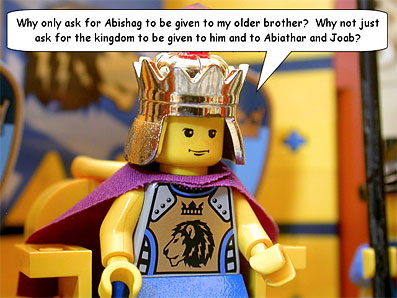
Eli’s corrupt priesthood came to an end when the Ark was taken by the Philistines. Saul’s corrupt kingdom came to a full end when the Ark returned (hence Michal’s barrenness). The last of Eli’s priesthood (Abiathar) was exiled when Solomon’s government began. Solomon’s kingdom was a new firmament (1 Kings 10:19). Isaiah, however, saw it being rolled up like a scroll (Is. 34:4).



